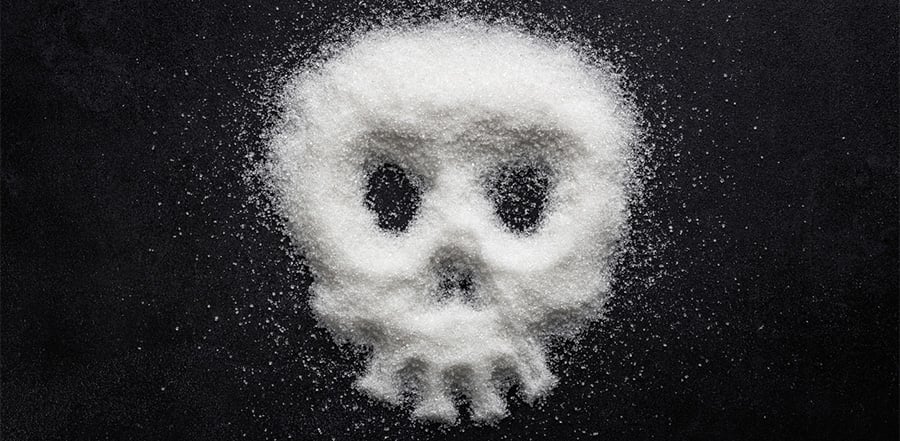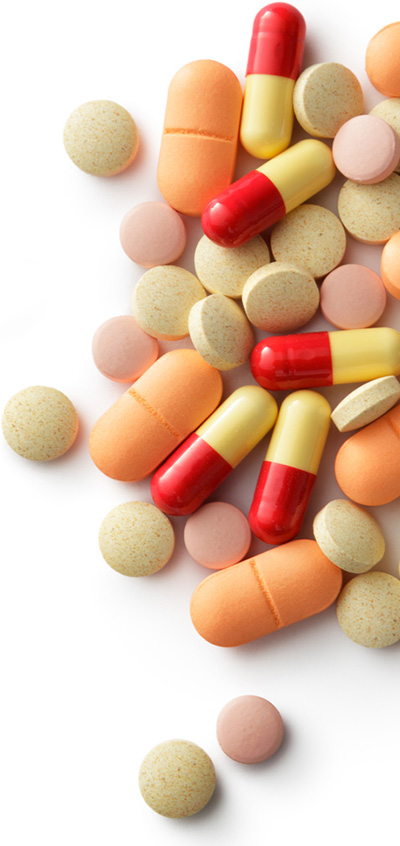Is Sugar Bad For You?
Is It Public Enemy #1?
Is sugar bad for you? A diet high in refined sugar certainly is. But interestingly, for roughly the past 15 years in the U.S., rates of obesity and type 2 diabetes have continued to rise while per capita sugar intake has actually been declining.

Is Sugar Bad For You?
First, let’s make sure we distinguish between refined sugars and natural sugars.
Essentially, natural sugars are sugars that occur naturally in whole foods like fruit.
Refined sugars are crystallized sugars that have gone through processing. They are added (often in large amounts) to drinks like sodas, lemonade, and sugary lattes, and foods like candy, cookies, cakes, doughnuts, energy bars, and sugary breakfast cereals.
Refined Sugars
So, is sugar bad for you? A diet high in refined sugar certainly is. No one would ever argue that a healthy diet is one that is full of foods high in refined sugars.
But interestingly, for roughly the past 15 years in the U.S., rates of obesity and type 2 diabetes have continued to rise while per capita sugar intake has actually been declining.
That’s not to say we’re a low-sugar-eating country. Not even close.
350 Calories of Sugar Daily
Currently, we’re consuming about 94 grams (350 calories) of sugar daily. That far exceeds the American Heart Association’s recommendation to limit refined sugar to no more than 100 calories per day (about 6 teaspoons) for women and no more than 150 calories per day (about 9 teaspoons) for men. There’s little doubt that a large intake of refined sugar leads to large bellies and increased risk of life-threatening diseases like type 2 diabetes.

Meat, Dairy, Sugar
Worldwide, refined sugar intake tends to rise as affluence rises. Just ask companies like Coca Cola. But one could probably find a better correlation between meat intake and economic good times than with sugar intake. The fact is, economic well-being leads people all over the world to increase their intake of meat and dairy products as well as their intake of refined sugars.
The Baddest of the Bad?
But unfortunately, opinion pieces like that of Dr. Stanton Glantz’s in a recent issue of the Journal of the American Medical Assocation suggest that sugar is the baddest of the bad. His article, likely read by physicians nationwide, feeds the questionable narrative of Atkinites and Paleo-Diet enthusiasts that sugar is what really promotes heart disease, not foods high in salt, saturated fat, and cholesterol.
This is utter (or udder?) nonsense.
In his article, Dr. Glantz attacks Dr. Mark Hegsted of Harvard School of Public Health. Beginning in the 1960s, Dr. Hegsted published groundbreaking research showing that foods higher in saturated fat and cholesterol led to higher blood cholesterol levels, which we now know promote heart disease. Clearly, citing Dr. Hegsted’s work as an example of having been biased for profit, as Dr. Glantz does, seems a stretch. Moreover, it negates the wealth of data published in the following decades affirming that diets rich in saturated fat and cholesterol raise the risk cardiovascular disease.
The Real Profit Mongers
If Dr. Glantz wants to point fingers at scientists biased by food industry money, what about the far more questionable conclusions of researchers like Dr. James DiNicolantonio, a pharmacist at St. Louis Mid America Heart Institute in Missouri? Unfortunately, Dr. DiNicolantonio fancies himself as some sort of nutrition expert. In a recent article in the British Medical Journal, he proclaimed that sugar is the white crystal more responsible for causing hypertension than salt.
Dr. Nicolantonio is a paid consultant to the Salt Institute. Why hasn’t he been called out by Dr. Glantz as producing work biased for profit?
Is it any wonder that America’s physicians and the general public are so confused about diet and disease?
Here’s what I see happening.
The Birth of Cholesterol-Lowering Drugs
Since statins started appearing on prescription pads coast to coast in the 1990s, the impact of foods high in saturated fat and cholesterol on coronary artery disease has largely been muted. Before statins, the National Cholesterol Education Program (NCEP) advised physicians and the general public that a normal blood cholesterol was about 180 to about 330.
But in our last 20-plus years of using statins, the NCEP has changed. It is now telling us that a “desirable” cholesterol level is less than 200. Even lower levels are now being promoted for people deemed at high risk of cardiovascular disease. The best way, physicians are often advised, to ratchet cholesterol down to these low levels is with – you guessed it – statins.
The Birth of Blood-Pressure-Lowering Drugs
We saw the same thing happen with blood pressure in the 1960s and 70s, which is when the first widely used hypertension drug – diuretics – came along. Up until the early 1970s, most physicians were taught that a normal systolic blood pressure was 100 plus your age. But ever since, blood pressure goals have been declining. And now, armed with data from the SPRINT trials showing that medications for intensive blood pressure management save lives, the medical community, with prodding from the pharmaceutical industry, is being increasingly told that blood pressure medications are the way to go. Higher doses, physicians are advised, should be prescribed to push blood pressure down to 120/80.
 How did drugs become the answer to diet-caused diseases like heart disease, diabetes, and hypertension?
How did drugs become the answer to diet-caused diseases like heart disease, diabetes, and hypertension?
And when it comes to raising cholesterol levels and promoting coronary artery disease, refined sugar is not more important than foods high in saturated fat and cholesterol, such as red meat, cheese, whole milk, butter, eggs, and cream.
Singling out sugar as being most responsible for cardiovascular disease is clearly a gross distortion of what the best quality scientific data tells us is most likely true. It makes no sense.
Unfortunately, it now appears to make sense politically and economically to some in the medical establishment, and that is something that should concern all nutrition-oriented health professionals.